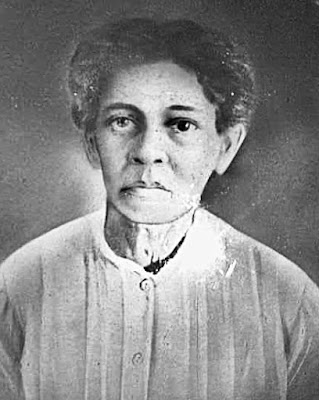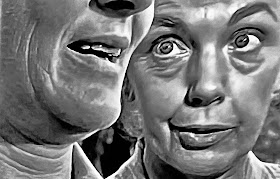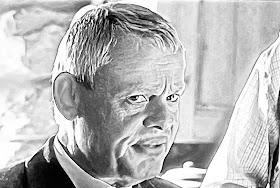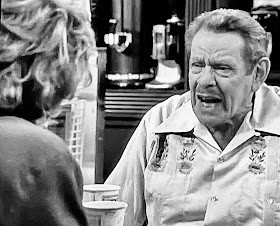Few of us can say that our ancestors were already here, when Columbus got lost in 1492. Some, like him, had their trips here, financed. Others were viciously stolen or sold, and brought here to be slaves. Some agreed to be indentured servants. Many fled oppression, war, famine, and lack of opportunities for a future.
History matters. The more you know, perhaps, the more compassion, understanding, and empathy you’ll have for others. Knowing about one’s ancestors, and all that they suffered, overcame, and sacrificed makes you grateful. Mine, on both sides, made Louisiana home.
This is my paternal great-great grandmother, Emma Dean Martin Hamilton. The year she was born, the 1855 Louisiana gubernatorial election was the second election to take place under the Louisiana Constitution of 1852. As a result of this election, Robert C. Wickliffe became governor of Louisiana. He reduced funds for public education, advocated the spread of slavery to the islands of the Caribbean, and the removal of free people of color from the state— lest they be a negative influence on slaves.
“Louisiana, looking to find a more straightforward method to exempt whites, created the Grandfather Clause in 1898 which allowed those who were able to vote before 1867, and those whose fathers or grandfathers could vote before 1867, to skip the tests and taxes. As no Blacks could vote in Louisiana before 1867 (the year in which the Reconstruction Act ordered universal male suffrage), the grandfather clause excluded Blacks in an explicit manner, thus, in theory, avoiding the ire of the Supreme Court and Northern Congressmen. Additionally, the enactment of the Grandfather Clause avoided national scrutiny because the national media was preoccupied with the coinciding outbreak of the Spanish-American War." ~BlackPast.org
This is my maternal grandmother, Ethel Mae Johnson Washington. She was born on Cinclare Sugar Mill Plantation (Cinclare Central Factory) in Brusly, Louisiana, in 1898–only 35 years after Lincoln’s Emancipation Proclamation. On June 11, 1970, the state of Louisiana finally ratified the 19th Amendment. My grandmother, a teacher, could not cast her first vote for president until 1972. She was 74 years old.
This is my paternal grandmother, Spencena “Rose” Hurstian (Herstain? Hersin?) Williams. She was born in Red Cross, Louisiana in Pointe Coupee Parish, Louisiana in 1910. (I’d love to know more about her father, Charles.)
"Between 1887 and 1892, Alabama, Arkansas, Florida, Georgia, Louisiana, Mississippi, Maryland, North Carolina, Kentucky, Tennessee, and Virginia refused equal access to African Americans on public accommodations and transportation. These laws forced Blacks to sit in the back of the bus, on separate cars in trains, and in the balcony at theaters, for example. From this period on, segregation became a rigid legal system separating the races from cradle to grave—including segregated hospital facilities, cemeteries, and everything in between—no longer tolerating any flexibility in the racial interactions that had previously existed."
This is my paternal great-grandmother, Nellie Gordon Martin. She was born on Australia Plantation, in Louisiana, in 1887.
The first implicit literacy test was South Carolina's notorious "eight-box" ballot, adopted in 1882. Voters had to put ballots for separate offices in separate boxes. A ballot for the governor's race placed in the box for the Senate seat would be thrown out. The order of the boxes was continuously shuffled, so that literate people could not assist illiterate voters by arranging their ballots in the proper order. The adoption of the secret ballot constituted another implicit literacy test, since it prohibited anyone from assisting an illiterate voter in casting his vote. In 1890, Southern states began to adopt explicit literacy tests to disenfranchise voters. This had a large differential racial impact, since 40-60% of blacks were illiterate, compared to 8-18% of whites. Poor, illiterate whites opposed the tests, realizing that they, too, would be disenfranchised."
This is my paternal great-grandmother, Aydell (Census enumerators wrote Idal and Idella) Seals Williams. She was born in Louisiana in 1882.
It’s a shame that a law is required to ensure the right of every eligible citizen to cast a ballot. It should be a given, but it’s where America has been, and unfortunately, here we are. People are actually burning ballot boxes in some states, and voters are being removed from rolls, in others.
This is my maternal great-grandmother, Amanda Mims Godfrey Washington. She was born in Mississippi in 1855. She lived in St. Landry, and Baton Rouge, Louisiana.
(Did you note those surnames? Yes. Those Washingtons were in Virginia, before they settled in Louisiana...and my great-great grandfather's name was--you guessed it--George.)
When I look at the photos of my grandmothers—all natural-born, law-abiding citizens—I marvel at the strength they must have had.
#whyivote





















































